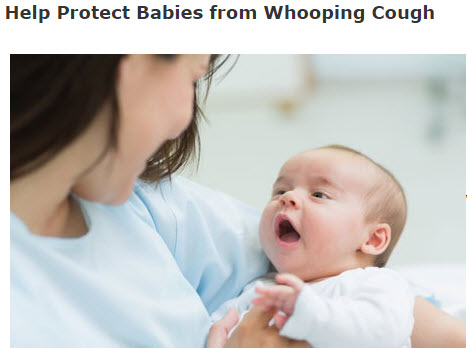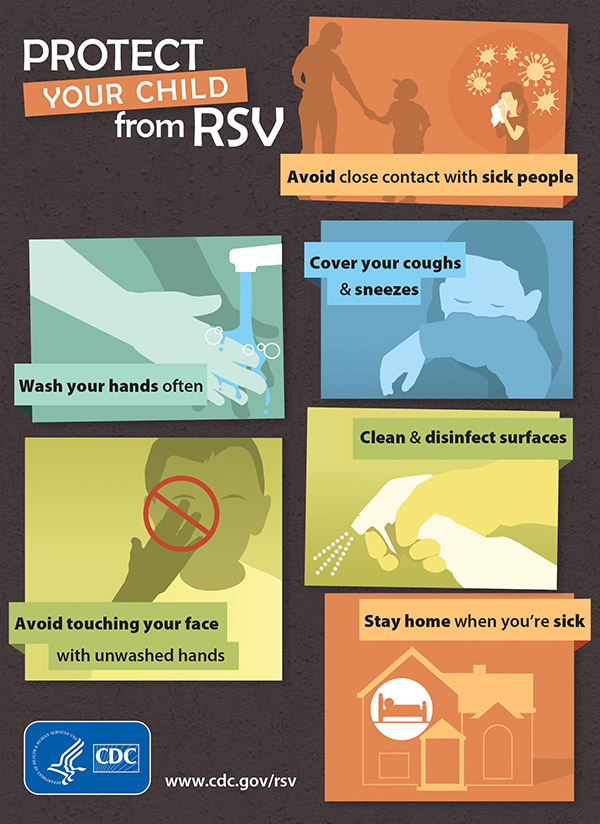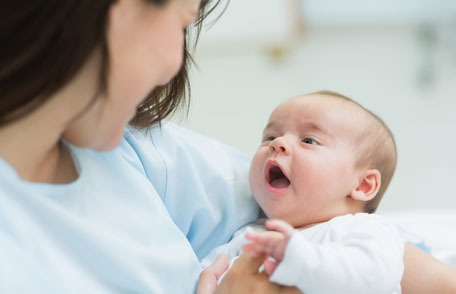
We are seeing high numbers of cases in Idaho of a couple of diseases that are serious and even deadly for babies. Respiratory syncytial virus, or RSV, and pertussis, commonly called whooping cough, are not likely to cause serious health issues for otherwise healthy adults, but it’s still very important for everyone to take precautions against both.
Let’s start with whooping cough. What can you tell me about that?
Whooping cough, or pertussis, is a very contagious disease that is spread by coughing or sneezing or being in close contact with others. Parents, older siblings, or other caregivers can give whooping cough to babies without even knowing they have the disease because early symptoms appear to be nothing more than the common cold.
What happens when babies are exposed to it?
Babies who have been exposed to whooping cough can get very sick. Young babies can get pneumonia, and many have trouble breathing. About half of babies younger than 12 months who get whooping cough end up in the hospital and a few even die from the disease.
And what is RSV?
RSV is a common respiratory virus that usually causes mild, cold-like symptoms. Most people recover in a week or two, but it can be serious, especially for infants and older adults. In fact, RSV is the most common cause of bronchiolitis (or inflammation of the small airways in the lung) and pneumonia in children younger than 12 months. It is also a significant cause of respiratory illness in older adults. Almost all children will have had an RSV infection by their second birthday. People infected with RSV usually show symptoms within 4 to 6 days after getting infected.

What can we do to protect ourselves and our families from these diseases?
Ideally, people with cold-like symptoms should not interact with children at high risk for severe RSV disease, including premature infants, children younger than 2 years old with chronic lung or heart conditions, and children with weakened immune systems. If this is not possible, they should:
- Cover coughs and sneezes with a tissue or upper shirt sleeve, not their hands.
- Wash their hands often with soap and water for 20 seconds.
- Avoid close contact, such as kissing, shaking hands, and sharing cups and eating utensils, with others.
These are good preventive measures for flu as well.
Is there a vaccine for RSV?
Researchers are working to develop RSV vaccines, but none are available yet. There is a drug available called palivizumab (pah-lih-VIH-zu-mahb) that will prevent severe RSV illness in certain infants and children who are at high risk. Talk to your healthcare provider to see if this drug can be used as a preventive measure if your child is in the high-risk group.
And for whooping cough?
There is a vaccine for that! There are two, in fact; one for children 6 years and younger called DtaP, and one for everyone else called Tdap. If you are not up-to-date on your whooping cough vaccine, you should plan to get vaccinated at least two weeks before coming into close contact with a baby. That gives your body enough time to build up protection against the disease.
It’s important to remember that even if you are healthy, you can carry infections to other more vulnerable people in your life who might not fare as well if they become sick. Make sure your vaccines (including the flu) are current, and wash your hands, cover your coughs and sneezes, and stay home and limit your exposure to others if you are sick.
A Closer Look at Your Health airs weekly on KBOI AM 670 in Boise at 6:45 a.m. Tuesdays. This is a transcript of the Feb. 6, 2018 program.
Resources:
- Learn more about pertussis, and listen to what whooping cough sounds like: http://healthandwelfare.idaho.gov/Health/DiseasesConditions/Pertussis/tabid/700/Default.aspx
- RSV on DHW: http://healthandwelfare.idaho.gov/Health/DiseasesConditions/RSV/tabid/201/Default.aspx
- RSV on CDC: https://www.cdc.gov/rsv/
